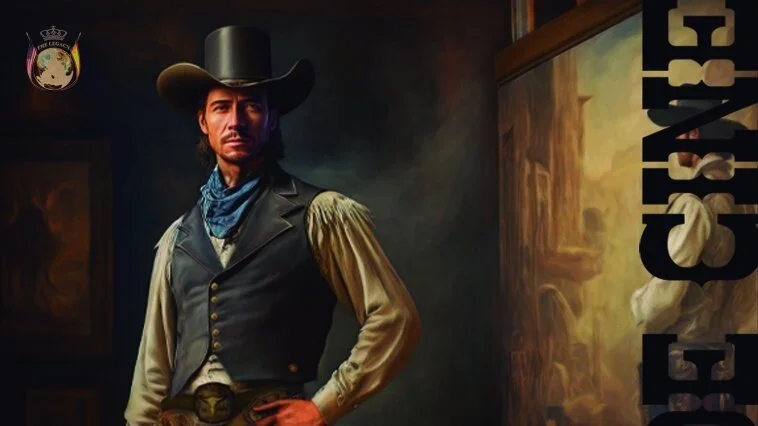Myths in film
Myths in film
We have been witnesses to the unstoppable advances of cinema over the last hundred years, from the silent films of Charlie Chaplin to the highly sophisticated fictional sagas such as Star Wars.
No sooner had the television set entered our homes did the influence and allure of cinema become institutionalized in millions of living rooms and kitchens, playing a very relevant role in forming the vision we have of what could have happened in other times, in other worlds, and in other scenarios—sometimes true and sometimes fictional.
It is in this fiction that the Black Legend and the myths of cinema create a false truth, a distortion of history that accompanies us as if it were a true story.
One of the most obvious examples is in the saga of the Pirates of the Caribbean (Gore Verbinski, 2003). The author of the essay, "Hollywood against Spain” [Hollywood contra España], Esteban Vicente Boisseau, states that “stealing, torturing and killing Spaniards, buying, and abusing Hispanic women, and sacking a Spanish city was not only justified, but a joyful and amusing event." This same author was recognized with an award by the Ministry of Defense for his work "The Image of Spain's Presence in America (1492-1898) in British and American Cinema” [La Imagen de la Presencia de España en América (1492-1898) en el cine Británico y Estadounidense].
Further explaining the propagandistic campaign elaborated in the 16th century to discredit Spain, the University of California professor Carolyn P. Boyd wrote "The Image of Spain and the Spanish in the United States of America” [La imagen de España y los españoles en los Estados Unidos de América]—an article in which she exposes the existence of this negative anti-Spanish stereotype in the United States.
In the excellent article published by Vicente G. Olaya in the newspaper El País on May 7, 2019—"The Spanish black legend spread by Hollywood” [La leyenda negra española que ha difundido Hollywood]—we are introduced to the subject with the examples that so aptly illustrate: he describes how the film 1492: The Conquest of Paradise (Ridley Scott, 1992) projects the image of a gloomy Castile that never ceased executing heretics. Given that the Spanish Inquisition killed some 3,000 people over three centuries, as Boisseau states in his work, if, as has been demonstrated, England's King Henry VIII murdered more than 50,000 Catholics during his reign, it would be logical for films, about those years of his reign, to show continuous executions. But we have yet to see that on the big screen.
Felipe II chose to invade England for compelling reasons: the cruel and continuous pirate attacks, the execution of Mary Stuart (Maria Estuardo), and the persecution of English Catholics. The Spanish King organized a large armada in 1588, that it is said capsized in a storm after an encounter with the English fleet. This is a centuries-old myth that will be difficult to change. Professor María José Rodríguez Salgado reveals that "no Spanish ship was lost as a result of the combat."
In the British film Elizabeth: The Golden Age (Shekhar Kapur, 2007), Sir Walter Raleigh is shown leading a burning English ship against the Spanish fleet, causing the gigantic explosion of numerous enemy ships, although the reality is that the armada sank several days later due to the force of nature, a storm.
Hollywood films enhance the image of the Anglo-Saxon colonization of North America without reflecting its Spanish past. If the presence of the Spaniards is shown, it is done as a memory that left no trace or depicts them as cruel conquerors. In Dances with Wolves (Kevin Costner, 1990) Kevin Costner plays a Union lieutenant who befriends a tribe of Sioux, an elder of which shows him a conquistador's helmet, saying that those who brought it arrived in his grandfather's time, and that they were eventually driven away, ignoring the fact that for two centuries there was a continuous Spanish presence from California to Florida.
In conclusion, rather than exposing an infinite list of examples of great film successes, I believe what is necessary, and what is urgently needed, without hesitation and with great discipline, is a production strategy for new films, a new era in the world of cinema, why not, raised and led by Spain, with Spanish, European and North American funds—a new era of film production with a renewed vision of the fair and informed storytelling that we proudly promote at The Legacy.
In our Myths in Film project, you will be surprised to discover that Robinson Crusoe was from Cantabria, and that James Cook would not have become famous without the theft of Spanish maps that led him sailing effortlessly to the places he claimed as his own, places where Spaniards had already made our mark hundreds of years earlier. You will also be surprised to learn that the English pirates fled in terror from the presence of Spanish corsairs. You will discover that the last Indian warrior, Geronimo, spoke perfect Spanish, went to mass, and drove automobiles, and that Gilda (Charles Vidor, 1947) starring Rita Hayworth brought Sevillian DNA to the red carpet. She was an exceptional woman, her beauty admired the world over. She was the daughter of an Andalusian dancer. Her real name was Margarita Cansino.
Sometimes reality far exceeds fiction.
We go on... learning and discovering, fighting against harmful stereotypes, myths, and legends. We go on with the illusion and the hope that we will be able to see ourselves reflected on the big screen... Let us hope it will be soon.
References:
Carolyn P. Boyd. University of California «La imagen de España y los españoles en los Estados Unidos de América»,
Esteban Vicente Boisseau «Hollywood contra España»
Esteban Vicente Boisseau «La Imagen de la Presencia de España en América (1492-1898) en el cine Británico y Estadounidense». Subdirección General de Publicaciones y Patrimonio Cultural. Ministerio de Defensa. 2019
El país. Digital “La leyenda negra española que ha difundido Hollywood”. Vicente G. Olaya. Madrid - 07 de mayo 2019
Myths of film, The Legacy’s new projects, premieres in Santander
MARCH 28TH, 2023










